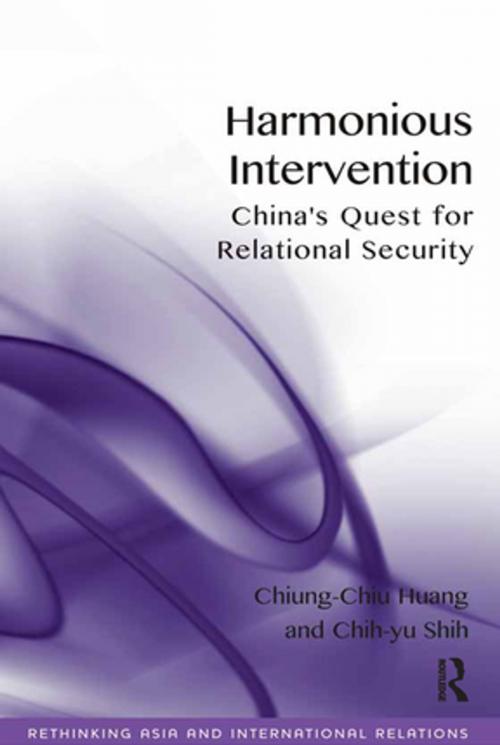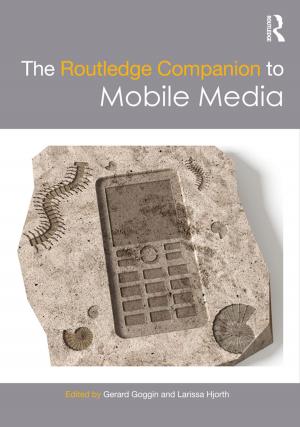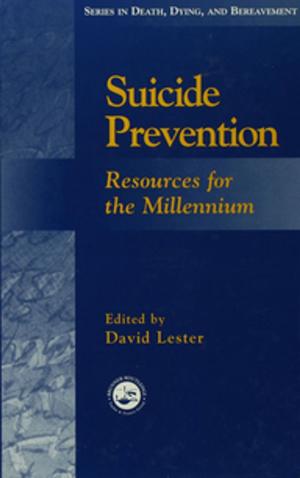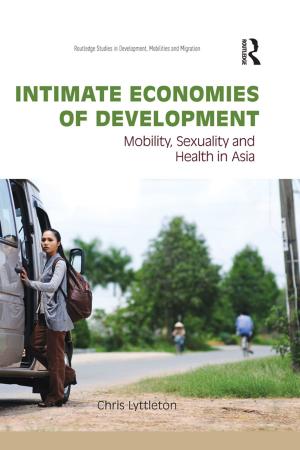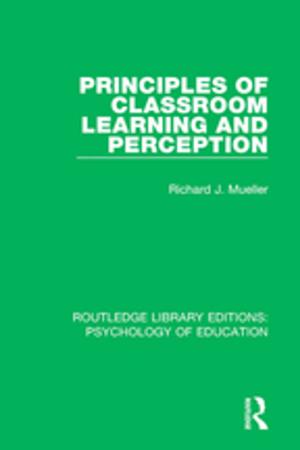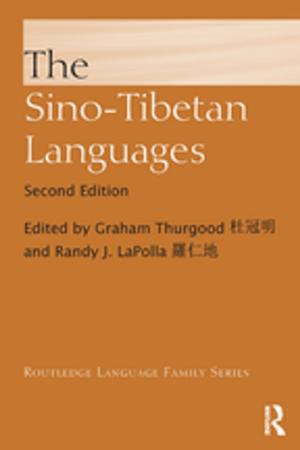Harmonious Intervention
China's Quest for Relational Security
Nonfiction, Social & Cultural Studies, Political Science, International, International Relations| Author: | Chiung-Chiu Huang, Chih-yu Shih | ISBN: | 9781317123699 |
| Publisher: | Taylor and Francis | Publication: | April 22, 2016 |
| Imprint: | Routledge | Language: | English |
| Author: | Chiung-Chiu Huang, Chih-yu Shih |
| ISBN: | 9781317123699 |
| Publisher: | Taylor and Francis |
| Publication: | April 22, 2016 |
| Imprint: | Routledge |
| Language: | English |
Two major features of international relations at the beginning of the 21st century are global governance and the rise of China. Global governance, advocating global norms, requires intervention into sovereign domains in defiance of those norms. However, an ascendant China adheres to a classic stance on sovereign integrity which prohibits such intervention. Whether or not China will ultimately Sinicize global governance or become assimilated into global norms remains both a theoretical and a practical challenge. Both challenges come from China’s alternative style of global governance, which embodies the doctrine of 'balance of relationship,' in contrast with the familiar international relations embedded in ’balance of power’ or ’balance of interest.’ An understanding of China’s intervention policy based upon the logic of balance of relationship is therefore the key to tackling the anxiety precipitated by these theoretical as well as practical challenges.
Two major features of international relations at the beginning of the 21st century are global governance and the rise of China. Global governance, advocating global norms, requires intervention into sovereign domains in defiance of those norms. However, an ascendant China adheres to a classic stance on sovereign integrity which prohibits such intervention. Whether or not China will ultimately Sinicize global governance or become assimilated into global norms remains both a theoretical and a practical challenge. Both challenges come from China’s alternative style of global governance, which embodies the doctrine of 'balance of relationship,' in contrast with the familiar international relations embedded in ’balance of power’ or ’balance of interest.’ An understanding of China’s intervention policy based upon the logic of balance of relationship is therefore the key to tackling the anxiety precipitated by these theoretical as well as practical challenges.
